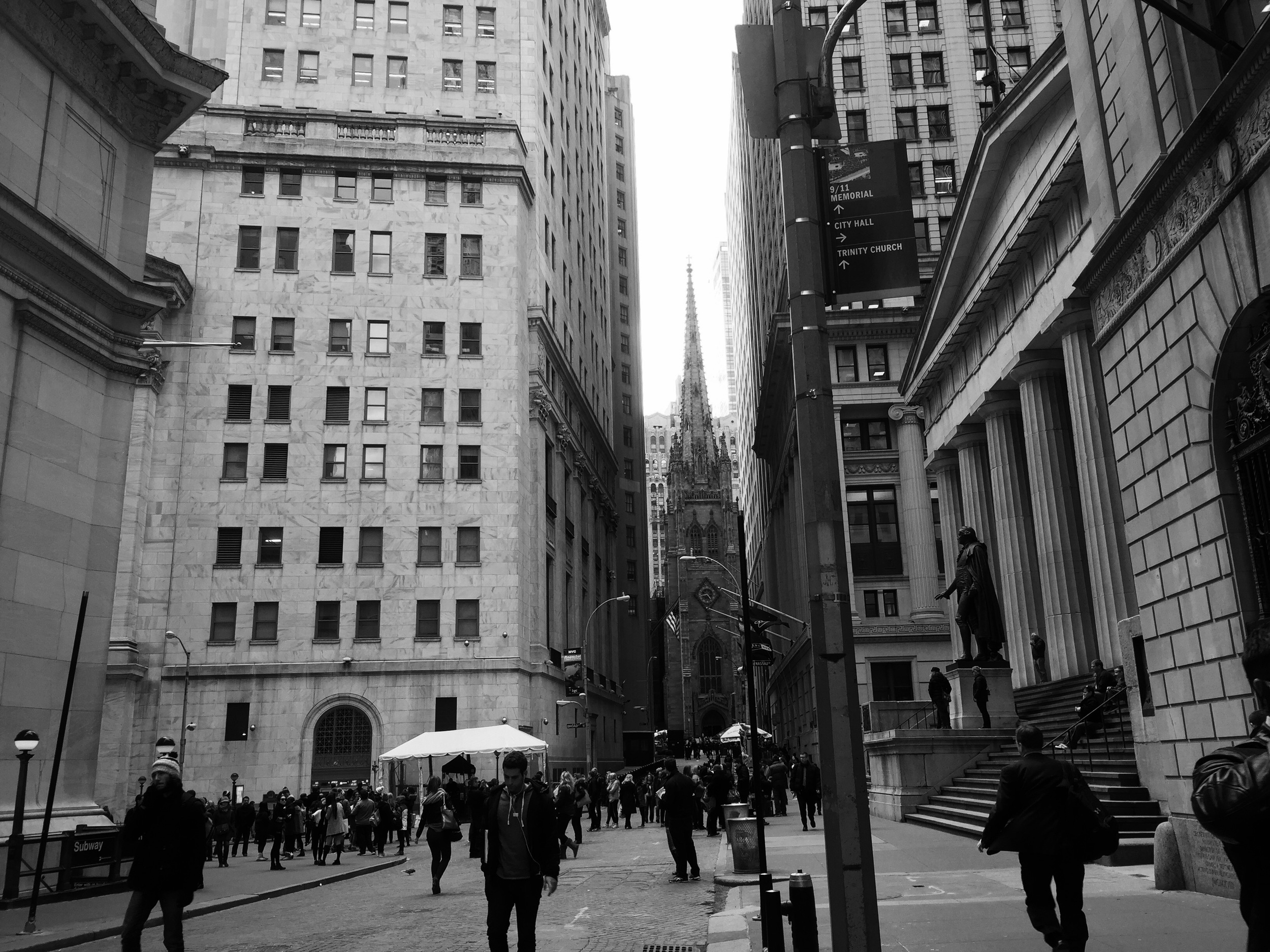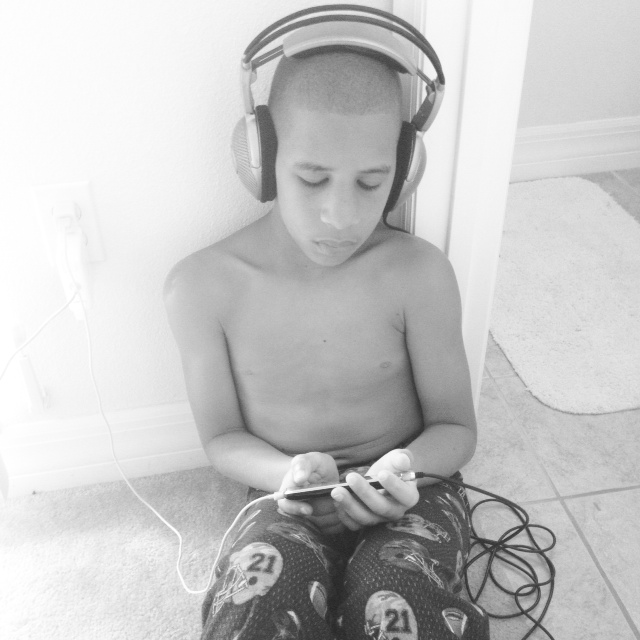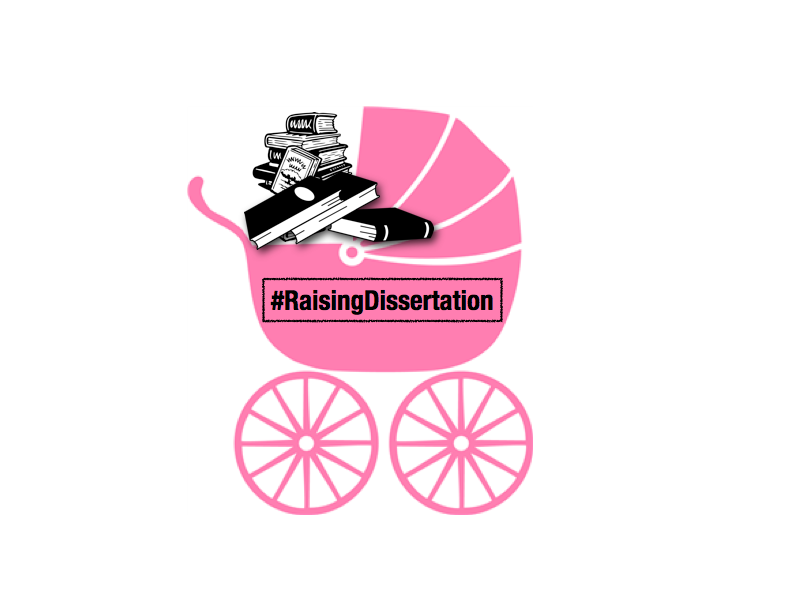Simon Says: #ThatMomentWhen a research participant reminds you that you're a good person
 A lot has been going on in my life. A lot of not-so-good things. Is Mercury retrograde over yet?
A lot has been going on in my life. A lot of not-so-good things. Is Mercury retrograde over yet?
While transcribing an interview from a conversation I had a few months ago with one of my research participants, I was reminded that my life still matters, and equally as important, that I *really* need to finish this dissertation. Mercury retrograde be damned.
The following is an excerpt from a conversation with a 19-year-old male from Bed-Stuy, Brooklyn. I'll call him Simon. This conversation occurred six months into data collection.
Tara: If this is the last time we ever speak, what is the one thing you want me to take away from this conversation?
Simon: That you have this charm to you. No real talk! Like you have a charm to you. Like, I be happy to see you everytime I see you.
Tara: It doesn’t have to be about me! That wasn't the point of me asking the question but that’s real sweet though.
Simon: Like you real cool. That’s the last thing I’d tell you! That you’re a very good person. That you’re very cool. That you’re charming.
Tara: Likewise. The feeling is mutual.
Simon: Thank you.
Tara: Do you have any questions for me?
Simon: When are you going to finish your dissertation?
#ThatMomentWhen social science research is cathartic. To be continued...
Fieldnotes 2: "In New York City, you have to make your own space"
 The following are excerpts from my fieldnotes describing a recent site visit. The names have been changed to protect privacy.
The following are excerpts from my fieldnotes describing a recent site visit. The names have been changed to protect privacy.
Excerpt 1
Roughly 45-minutes into the three hour visit, I noticed something interesting happening. This wasn’t anything I hadn't seen or read about before. It was certainly an instance that I’ve witness emerge inside and outside of classroom spaces, at public events, and around the dinner table. As Chad, a frequent customer at the cafe, talked to me, I noticed behind the counter that Ethan, Ben, and another young man who worked there were all hunched over their cell phones. iPhones, to be exact.
“Yo, you didn’t tag me, son!” Ethan said to Ben. There weren’t any customers in the cafe at this point. Ethan and Ben, while sitting behind the counter, were looking at their phones toggling through Instagram photos.
“Yo, she is ugly, son!” Ethan said to Ben, laughing. Chad looked up from our conversation and asked who they were looking at.
“That’s wifey.” Ethan responded looking at the iPhone screen.
“His wifey is ugly? How’s that?” Chad asked.
“No, no,” Ethan replied, “We looking at another picture now.”
If the cafe was a gendered space, it couldn’t be anymore masculinist than it was at this particular moment. This is what being in a barbershop must feel like, I thought to myself. I was the only woman in the space but that didn’t stop Ethan, Ben, and Chad from exchanging banter about pics of girls and women they gawked at on Instagram. These were light moments between Ethan, Ben, and Chad. I didn’t interject.
Later in the conversation, I asked Ethan and Ben if they were on Twitter.
“Nah,” replied Ethan.
They preferred Instagram along with a new Instagram-like application called Shots.
“Twitter is for females.” Chad interjected. “It’s gossipy, you know?”
“And Instagram isn’t?” I responded. (I had to.)
“Instagram is messy, but not gossipy like Twitter.” Chad replied.
We spent the next fifteen minutes talking about Twitter, Instagram, and then Facebook--which everyone, even me, seemed to agree was wack.
“People break up over Facebook, yo!” Ethan announced.
He told me about the time his girlfriend saw that he liked another girl’s picture on Instagram.
“I was liking this girl's pic to get more followers. It’s like promotion.” He said.
When Ethan's girlfriend found out that he was liking other girl's pictures on Instagram, she ended the relationship.
“I didn’t even do nothing!” He said.
Ben, who at this point I’ve dubbed the quiet one (relative to Ethan), asked if I was on Instagram. I told him I was, but that my account is private. I told him that I’m more active on Twitter. It’s where I get my news.
“Twitter used to be hot back in the day when it first came out, but not anymore.” Ethan said.
In many ways, I agreed with him. Twitter is a much more difficult space to navigate these days than in previous years. But perhaps so is social media in general.
Ethan showed me a picture of him on Instagram when he was 15-years-old. Ben posted the photo but forgot to tag Ethan. If Ethan wasn’t sitting directly next to Ben while they were scrolling through pictures, he probably wouldn't have noticed that Ben didn’t tag him.
“Can I take a picture of you guys while you're looking at your phones?” I asked.
Ethan eyes lit up. “Yes! You gonna put it on Instagram?”
I told Ethan and Ben that I would never post their pictures on Instagram. I also told them that the photos I was taking throughout the day were only going to be used for research.
But Ethan persisted. “You can put [the pic] on Instagram if you want.”
I didn't. Instead, I texted the photos to Ethan's cell phone.
These young men, although labeled disconnected at one point in their lives, were anything but. They moved about in the physical space of the cafe. They also moved about in the virtual spaces of social media. Their bodies, identities, and constructs moved fluidly across time and space. Sociality manifested as mobilities within and among physical, virtual, online, and offline spaces (or places?). These movements, constructs, activities, or whatever you call it were indicative of two very connected and co-present people.
Ethan and Ben's iPhones played significant roles in how connection was established and maintained. These objects, in other words, sustained connection. They also remained in Ethan and Ben's pockets the entire time while they served customers coffee and food.
Yet, Ethan and Ben clearly chose when and where to connect. While they sat in the physical space of the cafe--a constant, sustaining, and perhaps even safe place--the virtual spaces they participated in via their iPhones were not on equal footing. To Ethan and Ben, the spaces that constitute social media held different meanings about their interactions with other people.
Excerpt 2
Later on that day, Patrick, a white guy and regular customer arrived. He playfully argued with Ethan saying that Samsung makes better phones and electronics than does Apple. Ethan wasn’t hearing it though. He, and I too, pointed out how the Apple brand is much more sophisticated than Samsung.
"But, then again," I interjected, “neither Apple nor Samsung are paying my bills so for me it’s not that serious.” I said this while pulling out my iPad Air to check my email.
The banter continued. It was a lovely indication and reminder that there was community here, and it was alive, emerging, and always-becoming.
The topic of conversation shifted. I found out that Patrick was once a middle school teacher. He lived in the neighborhood. Patrick talked about once working in rural North Carolina. He loved the students but hated the parents. He chose to quit teaching once he realized he wasn’t being supported.
Patrick then talked about how it was too expensive to live in Bed-Stuy.
“You can’t find a studio in this neighborhood for less than $1100,” he said.
“Shit, if that!” Chad interjected.
Patrick continued, “The Hassidics are buying up the blocks around here. Then, you know what they do? They rent out rooms. Not apartments. Rooms! You end up living in a shoebox for thousands of dollars.”
“Yeah, that’s pretty crazy” I replied.
“In New York City, you have to make your own space,” Patrick said.
Space, an enigmatic concept, seems to facilitate and impede connection all at once, doesn't it? How then do we make spaces when, in our own lives, space is so obviously scarce, devalued, contested, and always-becoming?
Prologue to the Research #RaisingDissertation
 #RaisingDissertation is a way to keep me sane and connected to the outside world while working, at times in isolation, on my dissertation research. From time to time, and depending on my mood, I will post draft excerpts from my dissertation research to this public blog. I welcome dialogue from subscribers, readers, and lurkers. I acknowledge that ideas belong to the universe. That said, however, if you wish to write about my research elsewhere, you must cite my work here. For those in the press reporting about the media and technology uses among 'disconnected' youth, and youths involved in foster care and juvenile justice systems, feel free to contact me directly. I'd love to share my research with you; this should not to be confused with doing your research for you. For others researching in this area, I also welcome your insights here. As always, I'm happy to connect.
The following is an excerpt from an ever-growing dissertation involving the mediated lives of vulnerable or 'disconnected' youth in New York City.
#RaisingDissertation is a way to keep me sane and connected to the outside world while working, at times in isolation, on my dissertation research. From time to time, and depending on my mood, I will post draft excerpts from my dissertation research to this public blog. I welcome dialogue from subscribers, readers, and lurkers. I acknowledge that ideas belong to the universe. That said, however, if you wish to write about my research elsewhere, you must cite my work here. For those in the press reporting about the media and technology uses among 'disconnected' youth, and youths involved in foster care and juvenile justice systems, feel free to contact me directly. I'd love to share my research with you; this should not to be confused with doing your research for you. For others researching in this area, I also welcome your insights here. As always, I'm happy to connect.
The following is an excerpt from an ever-growing dissertation involving the mediated lives of vulnerable or 'disconnected' youth in New York City.
Prologue to the Research
While I was completing a master’s degree in Women’s Studies I spent long hours in my room reading and writing about people dislocated from their communities as a result of natural disaster and social conflict. Also during this time I was taking care of my father whose health was deteriorating. Throughout graduate school and while living with my father in rural North Texas, I became isolated and somewhat disconnected from the local community. Because of these social and familial circumstances, I retreated into reclusively, and likely as a result, I found affinity with a Macbook computer and online social networks.
Media were tools that I used to not only document research but they also provided a means of escaping, albeit temporarily, from the grind of graduate school and the solitude of caring for a dying parent. In 2006 I posted my first YouTube video online. There was something about performing in front of a digital camera and then uploading a four-minute video to a social media site (SNS) for strangers to comment on and ridicule that provided me with a sense of community and place. While locked in my room researching one day, my father, who was checking-in on me asked, "What are you writing on your computer?" His question, imbued with both care and wonder, has stayed with me years after his death.
My father was born in 1930; one year after the U.S. stock market crashed that subsequently gave rise to The Great Depression. He never used a computer, and it was only during his late sixties and throughout his seventies that he used a cell phone. He would have never described his relationship with a cell phone through affinity, but rather perceived the mobile artifact as an inconvenient sign of the times. As I reflect back to that moment when he asked me about what I was writing on the computer, I think about his orientation to technology. At the time, I would not have described what I was doing on my computer as writing. However, my father’s way of knowing how a computer functioned was intuitive, and in fact true. I do write on my computer, as in mark, produce, and compose—just not with a led pencil or ink pen.
Thinking too about my father, who was a writer and oil painter, and his relationship to the pen and paintbrush, these were technologies through which he found catharsis, just as the button and mouse are instruments through which I can connect digitally with others and express myself. As a child of the Great Depression, and a nomad of this digital world, my father and I, respectively, used the technologies and media of our generations to write our ways into knowing, participate in culture, and to find a sense of place in the world.
When I first began to work with young people who were involved in foster care and juvenile justice systems, I noticed that they too were finding ways to connect with others using social, digital, and mobile media. They were composing on and connecting to publicly mediated networks, engaging in what Alice Marwick, Ph.D. calls ethnography of display[1]. Some of these young people had lost parents at an early age, transitioned in and out of school, and had difficulty finding work. Despite lacking supportive ties to family, school, and work, these young people still managed to find ways to digitally participate in the circulation of culture and knowledge, even with limited access to computers, cell phones, and the Internet. I spent time working closely with young people who, when given access to borrowed computers and Internet WiFi (wireless technology that enables connection to the Internet) would log on to Facebook or WordPress (a popular blogging web platform), connect with friends and share media artifacts like digital pictures and videos. These young people were not simply consuming media, but also participating—despite their circumstances, in the meaning making processes through relatively public and mediated social networks.
As I approach this research, I am again drawn back in time to the question my seventy-year-old father asked me nearly ten years ago. A question that at its core wants to know: What do we do with media and networked technology, and why do we do it, particularly during episodes in our lives when we seem dislodged from support networks that are meant to ground us? MIT specialist, Sherry Turkle writes in her book Alone Together (2011) that “[t]he network is seductive [and] if we are always on, we may deny ourselves the rewards of solitude” (pg. 3). While it may be true that relentless connection to networked technology can impose new communication challenges for people and our relationships, one might consider how networked technology can mediate information-seeking practices and connection, particularly for those who, during moments of difficult transition, find solitude a nuisance, whose offline supportive ties are scarce commodities, and for those whose privacy is complicated by federal legislation and institutional regulations.
This subtle consideration about our relationship to/with each other and networked technology, along with the question that asks what is it that we do with media guides this research. I am compelled to know more about how young people who are characterized as disconnected and vulnerable might find a sense of community and place, if at all, through media and technology. Furthermore, I think about what these findings might reveal about the organization and space of their social ties and networks. My inquiry here is motivated by care for and wonder about the lives of young people I have had the privilege of working with for nearly two years. This exploratory research is also an ode to my father’s loving question years before. And as Cris Beam writes in her book about youth in foster care, To The End of June (2013), this research is a way for me to look.
[1] On February 20, 2014 during a presentation at Teachers College, Columbia University, Alice Marwick, Assistant professor of Communications and Media at Fordham University described the writing and producing that we do via web media as “ethnography of display”. Marwick noted that during the earlier days of blogging and online journaling, text was the primary mode of displaying information. The current web landscape complicates what it means to write our ways into knowing and being because of visual media like images and video. The term “ethnography of display” encapsulates both how people produce publicly online and how these practices overtime tell a story about self-presentation.
On raising Dissertation
I’m raising a child right now. Her name is Dissertation. She keeps me up all night. I dream about her. I worry about her. I think about her while walking the streets of New York City. She’s got me. I’m on her schedule. I have headaches during the day, and when I rub my shoulders, it sounds like I’m popping bubble wrap paper. The more I pay attention to Dissertation the more I learn about my life story. It’s weird. She expects me to guide her, to make her something that the world will appreciate, and that scares the shit out of me. But she’s my responsibility. I can’t let her down because I love her. The times when I think I’ve got it all figured out, she tells me to rethink my assumptions. And I’m pretty sure that since giving birth to this life of words, I’ve gained at least 10 pounds. Thank god for Malbec and Idris Elba.

Yes, boo. You right.


